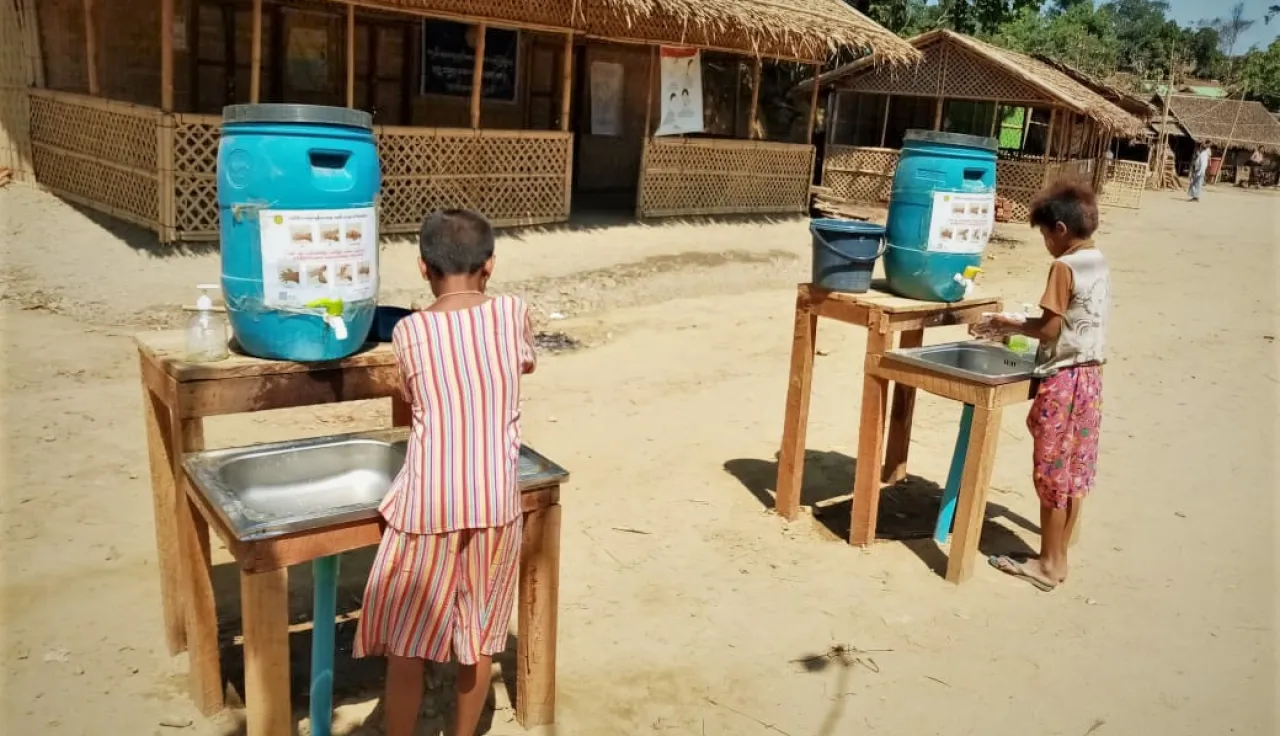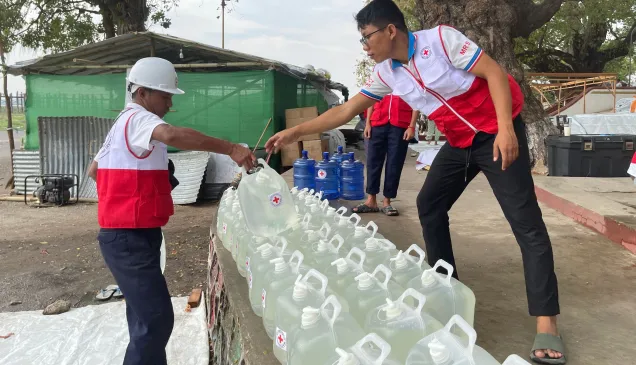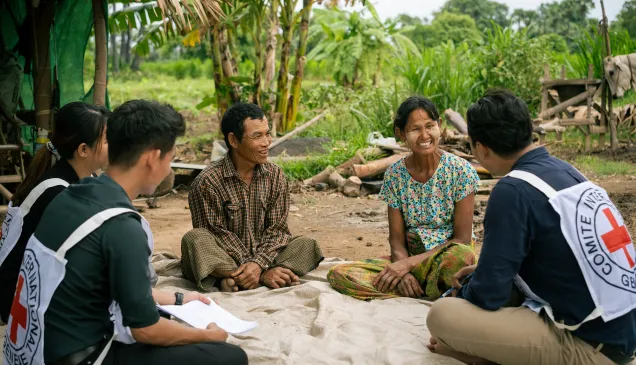Myanmar: Humanitarian action and COVID-19 response in Rakhine

Concerned for the conflict-affected communities, ICRC and the Myanmar Red Cross are monitoring the situation and reinforcing humanitarian and COVID-19 response in Rakhine State, Myanmar.
Since January 2020, Rakhine State has witnessed an intensification of the conflict between the Arakan Army and Tatmadaw. Tens of thousands of people remain displaced, with serious humanitarian consequences for the civilian population. It is reported that the number of incidents involving landmines and unexploded ordnance in the first half of 2020 alone has nearly surpassed the total for 2019 in Rakhine.
The current fighting compounds an already-fragile humanitarian situation prevailing since the conflict in August 2017, coupled with the challenges of preventing and mitigating the risks of the COVID-19 pandemic. The presence of COVID-19 is particularly acute for communities living in areas affected by the armed conflict, including those residing in camps for internally displaced persons.
Since the conflict erupted in 2018, the International Committee of the Red Cross (ICRC) and Myanmar Red Cross Society (MRCS) have reached 71,000 displaced persons throughout 119 locations in Kyauktaw, Buthidaung, Ponnagyun, Rathedaung, Mrauk-U, Minbya and Maungdaw with a range of humanitarian assistance and protection services.
The ICRC and the Myanmar Red Cross are concerned about the increasing impact upon all communities and are reinforcing their humanitarian response in Rakhine State. The ICRC continues to monitor the situation of the civilian population, share its observations and recommendations with the relevant parties to the conflict, and alongside the MRCS, work to reduce the risks to which communities are exposed, and reconnect families that have been separated.
At the same time, we are adapting our programmes to comply with COVID-19 prevention measures put in place by the authorities, to ensure the safety of all communities, staff and volunteers.



